Reviewing the Classics| Mary Poppins
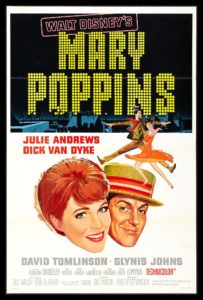 In 1964, Walt Disney was at the pinnacle of his power in Hollywood. He had proven time and time again to be a master storyteller by producing a bevy of cherished, classic films over four decades. And that year, he brought the world Mary Poppins.
In 1964, Walt Disney was at the pinnacle of his power in Hollywood. He had proven time and time again to be a master storyteller by producing a bevy of cherished, classic films over four decades. And that year, he brought the world Mary Poppins.
Mary Poppins is the most “Disney” Disney movie that was ever made under Walt’s supervision. A masterpiece of sight and sound, the film exudes charm and sophistication at every turn while remaining thoroughly entertaining. Walt and his team of expert storytellers and technical wizards pulled out all the stops to make Mary Poppins truly timeless and memorable.
With the release of the film’s sequel, Mary Poppins Returns, happening this month, I wanted to take a deeper look at this classic film. Just like every good film made by Walt Disney, Mary Poppins has a strong thematic center. What makes the film relatable is that strong core, and how its moral center revolves around not the titular magical nanny, but another character in need of learning a valuable lesson about family.
OFF WE GO! SPOILERS AHEAD
Walt Disney’s Triumph
Herbert Ryman, a longtime employee of Walt Disney’s, once compared Walt to the conductor of a large orchestra. Every person who worked for him harnessed their talents to create something more spectacular and beautiful than he or she could have accomplished on their own.
If Walt was indeed the conductor, then Mary Poppins was his magnum opus.
While Walt Disney made other films that I like slightly better (20,000 Leagues Under the Sea is one of them), there’s no denying that Mary Poppins was his masterpiece. It’s a very happy movie, filled with fun, frolic, and an overwhelming sense of magic and sincerity within each frame. The enthusiasm is infectious and one can tell that everyone involved with its production had a lot of fun making it.
Moreover, Mary Poppins is a masterwork because Walt had all of his top people on the project– people who had been working for him for literally years and decades, and became masters of their respective crafts.
The visual effects, particularly the animation, hold up even today because they were the work of true geniuses in the field. All the character animation was supervised by six of Walt’s master animators, whom he affectionately referred to as his “Nine Old Men.” They were the giants of their medium even then and imbued every character, however minor, with a certain degree of charm, weight, personality, and fluidity of movement.
The glue that held this fabulous film together were the music and script. Richard and Robert Sherman have composed not just some of the most well-known Disney songs, but some of the most well-known songs ever, period. It seems like every person on the planet knows at least one Sherman song. Mary Poppins was the brothers’ best work and probably their most famous. The songs and score bounce to a smile-inducing tempo and are filled with clever lyrics and melodic phrases. Most or all of the songs are now iconic pieces of the Disney canon, including “Spoonful of Sugar” and “Supercalifragilisticexpialidocious.”
The script to Mary Poppins pops with personality. While Bill Walsh and Don DaGradi did indeed write the final script, the story was a clear team effort with many contributors. P.L. Travers, the creator of Mary Poppins, had her say, as did Walt Disney himself and even the Sherman Brothers. Each scene and character, no matter how small or seemingly diverting, was given a chance to shine and contribute to the plot. While one might see the film’s story as a collection of incongruous adventures, it all leads to the film’s simple yet brilliant climax.
Tuppence a Bag
During the production of the film, Walt Disney gravitated toward one of the Shermans’ songs in particular: “Feed the Birds.” In fact, even after production on the film had wrapped, Walt would often ask the Shermans up to his office on Friday afternoons to play the song for him – a tradition they would carry on even after Walt’s death two years after Mary Poppins premiered.
After hearing the song, Walt would stare wistfully out his office window and say, “That’s what it’s all about, isn’t it?” And he was right.
“Feed the Birds” is indeed the emotional and thematic lynchpin that holds the Mary Poppins narrative together and takes it to a higher place. The song, sung by Mary Poppins to the Banks children, is about an old beggar woman on the steps of St. Paul’s Cathedral who sells bags of bread crumbs to feed the birds who congregate there. But what the song is really saying is that it doesn’t take much to make a positive influence on the people around us.
The narrative of the film takes a surprising turn after the song is performed, as the audience realizes that Mary Poppins isn’t there to save Jane and Michael Banks but to redeem their father, George.
You’re a man of high position, esteemed by your peers. And when your little tykes are crying, you haven’t time to dry their tears.
When the story began, both George and Winnifred Banks (played brilliantly by David Tomlinson and Glynis Johns, respectively) were wrapped up in their own lives and responsibilities– George with his work at the bank and Winnifred with her suffragette cause. What neither of them realized is that they were neglecting their most important responsibility of all: being a loving parent to their two children. Mary Poppins throws George’s “perfect” world upside-down to shake both him and his wife out of their aloofness.
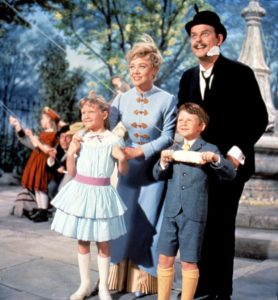 The children cried out for attention, asking their father to help them mend a kite or write the advertisement for a new nanny. These seemingly small gestures, like a spoonful of sugar, would make all the difference to Jane and Michael. That’s why it was extremely poignant that Mr. Banks mended the children’s kite at the end of the film and the whole family went out to the park to fly it.
The children cried out for attention, asking their father to help them mend a kite or write the advertisement for a new nanny. These seemingly small gestures, like a spoonful of sugar, would make all the difference to Jane and Michael. That’s why it was extremely poignant that Mr. Banks mended the children’s kite at the end of the film and the whole family went out to the park to fly it.
There are two biblical truths at work within the narrative of Mary Poppins. The first is about giving one’s children the best of oneself. While working to support the family is important, the most important role of a mother and father is just that– being a parent. God has placed a responsibility in the hands of parents to raise their children, His children, in the right way toward Him and His path.
Start children off on the way they should go, and even when they are old, they will not turn from it.
-Proverbs 22:6
Many children today are neglected by parents who are far too wrapped up in their own lives to pay any attention to them, seeing the children more as fashion accessories than God’s charge on their lives, and leaving the fundamentals to state-run schools and a depraved culture. Some parents aren’t even in their child’s life for whatever reason and the culture continues to downplay the important role a father plays in the development of a child.
Children need parents– both parents. Mothers and fathers contribute in their own way to the development of a child. And it really doesn’t take much to make a child feel important or wanted. Those little gestures of love add up to much more over the course of a child’s life.
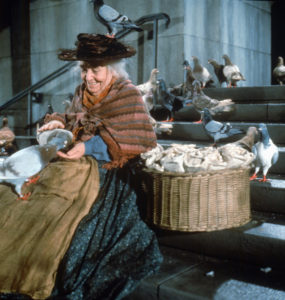 The second truth illustrated in Mary Poppins is the inherent virtue the act of freely giving contains. The tuppence (or two pence) mentioned in the song isn’t a lot of money. But the act of giving that small amount goes a long way in the eyes of God.
The second truth illustrated in Mary Poppins is the inherent virtue the act of freely giving contains. The tuppence (or two pence) mentioned in the song isn’t a lot of money. But the act of giving that small amount goes a long way in the eyes of God.
In the gospels of Mark and Luke, Jesus observed a widow placing two coins into the temple treasury – pretty much all the money she had. There were more wealthy people who contributed much more to the box, but Jesus zeroed in on this woman’s seemingly paltry sum because she had freely given in faith and sacrifice.
Calling His disciples to Him, Jesus said, “Truly I tell you, this poor widow has put more into the treasury than all the others. They all gave out of their wealth; but she, out of her poverty, put in everything – all she had to live on.”
-Mark 12:43-44
What Jesus is saying in the above passage is that the amount given isn’t the point of giving. What’s more important in the eyes of God is the intent behind the giving. Sacrificing and giving of oneself is a humbling experience. It makes us grateful for all that God has blessed us with. And parents sacrifice and give constantly to their children, doing it freely out of love.
Our Lord Himself continues to freely give us the things we need. He even humbled Himself to the point of becoming human, giving Himself up so that we could one day stand in His presence. To God, that sacrifice wasn’t much, but the intent behind it was all love and we are eternally grateful for His generosity.
Remember this: Whoever sows sparingly will also reap sparingly, and whoever sows generously will also reap generously. Each of you should give what you have decided in your heart to give, not reluctantly or under compulsion, for God loves a cheerful giver.
-2 Corinthians 9:6-7
The Last Word
Mary Poppins is an enduring classic. Its enthusiasm and sense of joy are infectious. The film was created by one of the greatest storytellers ever to come out of Hollywood, along with his cadre of geniuses and wizards that made his vision come to life. Even over five decades after its release, people are still singing its songs and hold the film up as an icon of cinema. It’s no wonder that a sequel will finally be released to attempt to recapture some of that magic.
The story of the Banks family’s visit by a magical nanny is one of Walt Disney’s most poignant. Within the narrative is a story of redemption for Mr. and Mrs. Banks. They both learned that children need their parents to give them that “spoonful of sugar” and “tuppence a bag” to get through life’s challenges. It may not seem like much, but to our Heavenly Father, every act of kindness and love goes a long way.


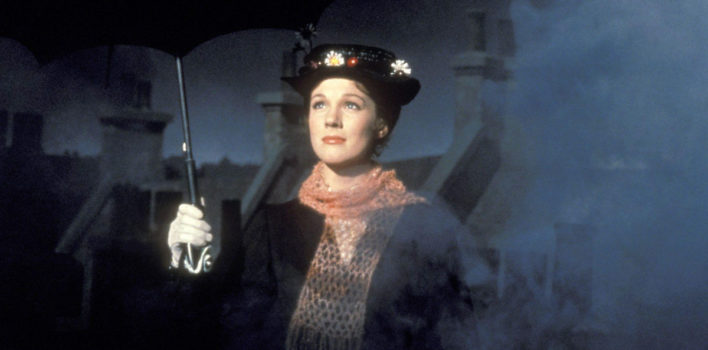
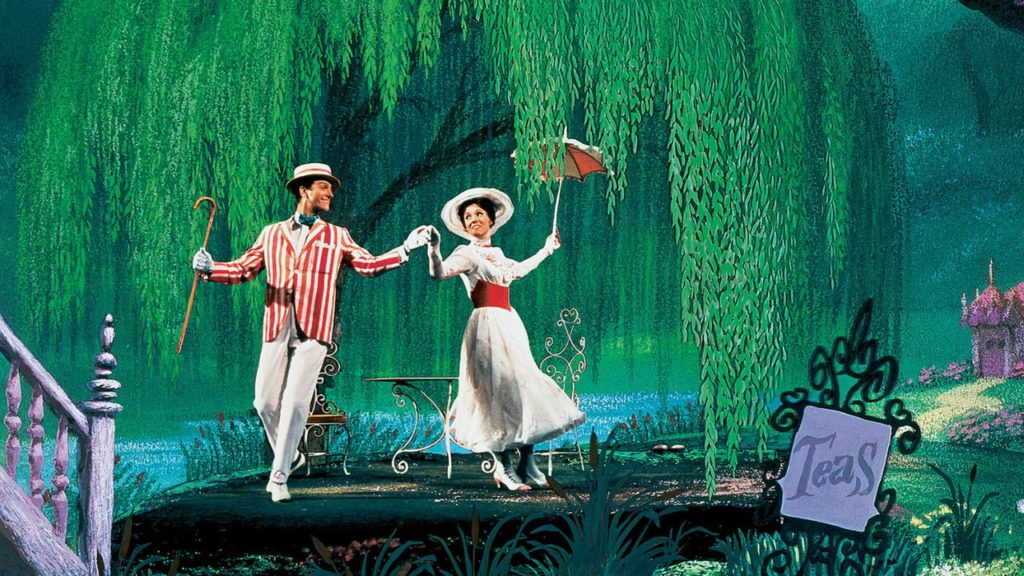
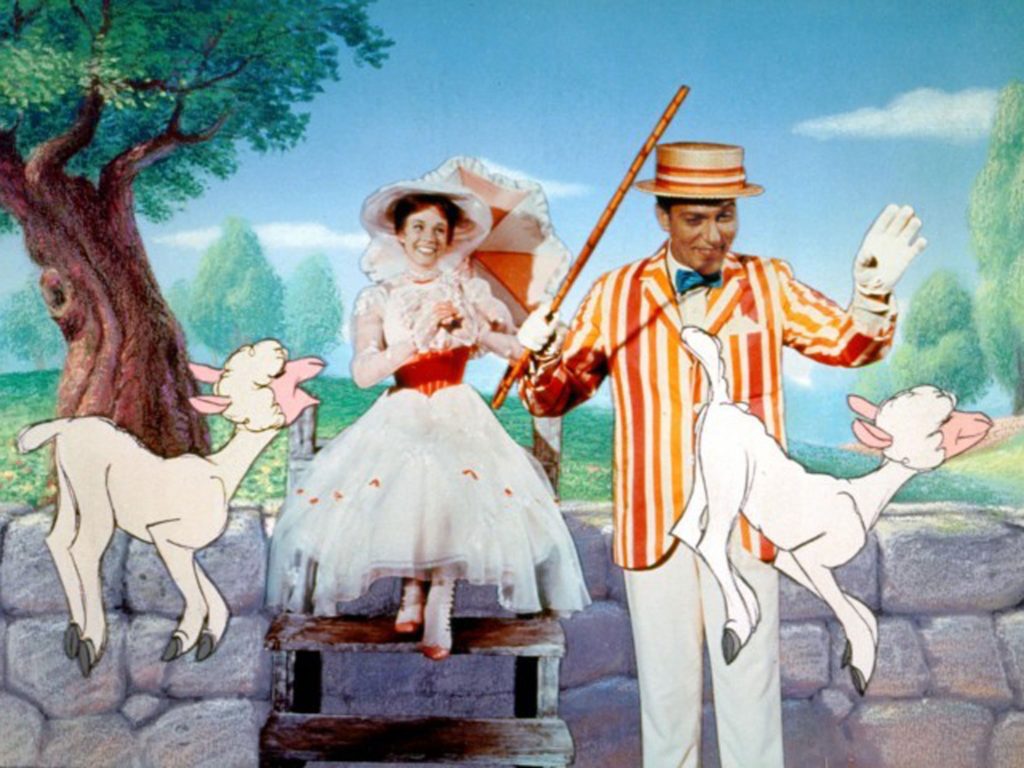
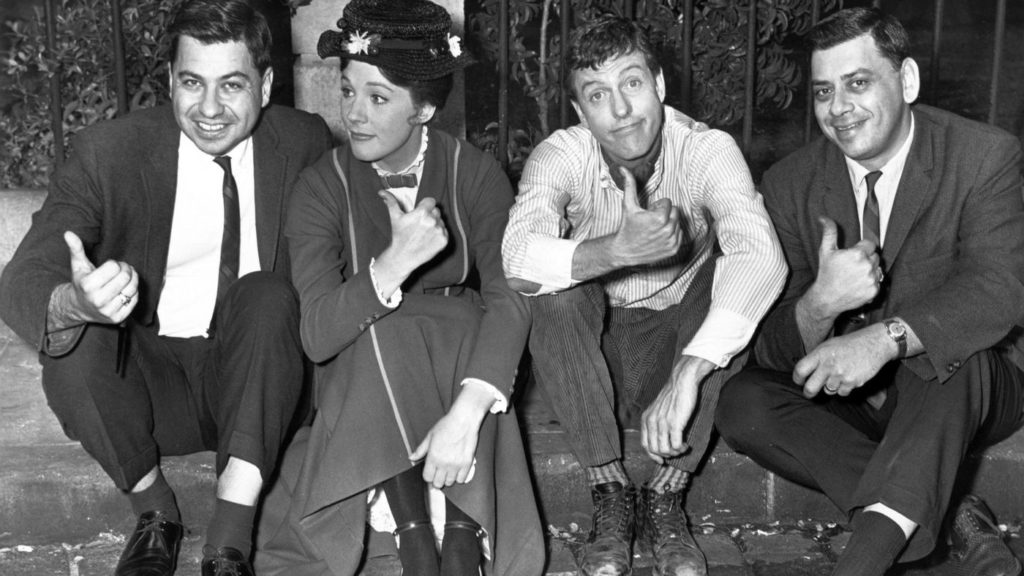
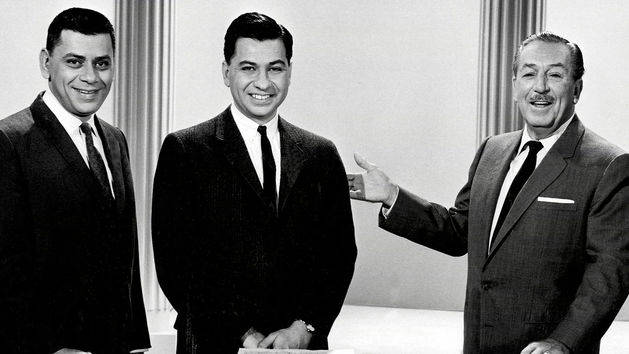
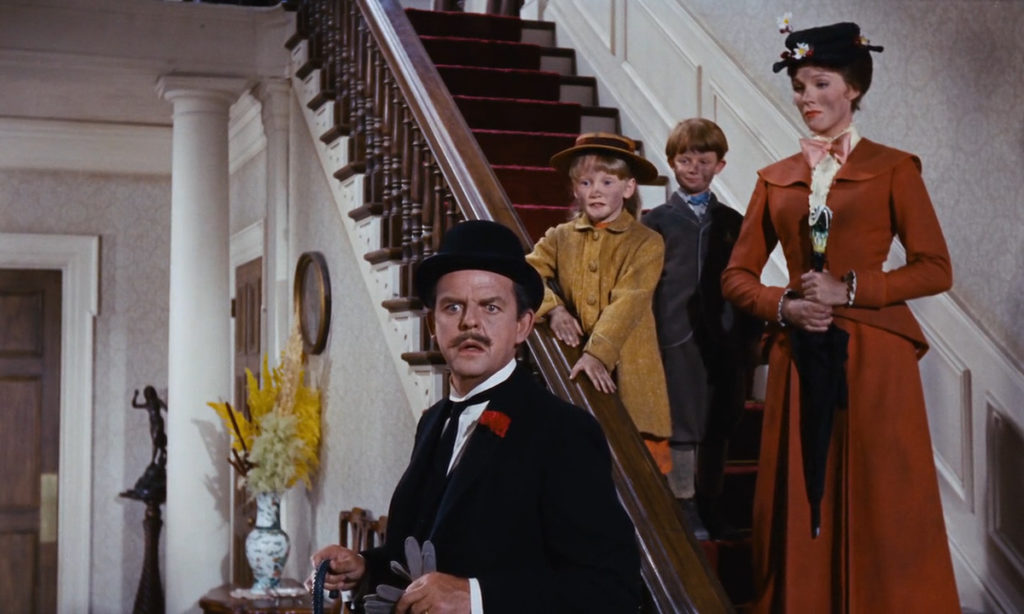





Pingback: Review| Saving Mr. Banks – Honor Thy Father | Reel World Theology